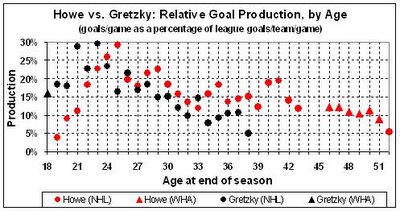[t]he decision to preempt is a political judgment in which Congress puts America's sovereignty and the protection of Americans' interests above putative treaty obligations. It seems unlikely that a court (the U.S. Supreme Court, in particular) would find that the constitutional grant of power to declare war, which is so fundamental to America's sovereignty and to the protection of Americans' interests, can be ceded by treaty to an international body that cannot be relied upon to protect our sovereignty and our interests.When I quoted a portion of that passage in a comment thread at Catallarchy, Joe Miller took exception in a post at his blog, Bellum et Mores. Joe and I then had an inconclusive exchange in the comment thread. We focused on the constitutionality (or lack thereof) of those provisions of the UN Charter that bear on the conduct of war by members:
I won't repeat the whole exchange between Joe and me (which you can read here), just some of my main points:The Security Council shall determine the existence of any threat to the peace, breach of the peace, or act of aggression and shall make recommendations, or decide what measures shall be taken in accordance with Articles 41 and 42, to maintain or restore international peace and security. (Article 39)Nothing in the present Charter shall impair the inherent right of individual or collective self-defense if an armed attack occurs against a Member of the United Nations, until the Security Council has taken measures necessary to maintain international peace and security. Measures taken by Members in the exercise of this right of self-defense shall be immediately reported to the Security Council and shall not in any way affect the authority and responsibility of the Security Council under the present Charter to take at any time such action as it deems necessary in order to maintain or restore international peace and security. (Article 51)
[The Charter] (in theory) delimits Congress's authority to declare war, even though that authority isn't delimited in the Constitution. (There's no mention there of "self defense," for example.) The . . . UN Charter, therefore, amounts to constitutional amendment by treaty. That's not how the Constitution is supposed to be amended. . . .Brian Doss says it very well in a post at Catallarchy, which ends with this:
. . . Our membership in the UN . . . amounts to a general concession that the Security Council (not Congress) gets to decide when we are acting in self-defense and when we can go to war when we are not acting in self-defense (as the Security Council sees it). . . . [T]he provisions of the UN Charter with respect to war do not merely implement Congress's authority to declare war -- rather, they fundamentally modify that authority.
. . . I have no problem with treaties that implement powers granted to Congress and the president (e.g., the negotiation and ratification of trade treaties). I have a fundamental problem with a treaty (the UN Charter) that circumscribes the power of Congress to declare war. That isn't an implementation of a constitutional power, it's a denial of a constitutional power. . . .
In ratifying the Charter, the Senate essentially surrendered a good chunk of (if not all of) Congress's constitutional authority to declare war. . . . In other words, if the U.S. were to abide by the letter of the UN Charter (as interpreted by the Security Council, not Congress), the president and Congress would be prevented from taking actions that they judge to be in the best interest of Americans. That, it seems to me, vitiates the Framers' intent, which was to place the decision about going to war in the hands of the elected representatives of the people of the United States -- and certainly not in the hands of foreign powers. . . .
It all comes down to [this] question: Who gets to decide whether certain conditions [for going to war] are met -- Congress or an international body over which Congress has no authority? Answer: international body over which Congress has no authority. The U.S. (in theory) can go to war only with the approval of both Congress and the international authority. Again, I submit that that's an unconscionable violation of American sovereignty.
[S]ince the Constitution is the ultimate source of authority in the US government, and as it trumps both law and treaty when there is conflict; and as the Constitution may not be amended by treaty but by manner prescribed by the Constitution; and as it would require an amendment to the Constitution to substantively modify Congress’ warmaking authority; the UN treaty therefore is not a legal constraint upon the US Congress’ warmaking authority, and Congressional [authorizations for the use of military force] or declarations of war are necessary and sufficient for a US war’s legality.Precisely.
But I'm confident that we'll be hearing more from Joe. Stay tuned.
Related posts: War, Self-Defense, and Civil Liberties (a collection of links)

